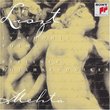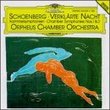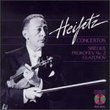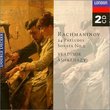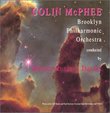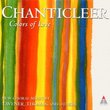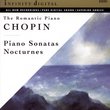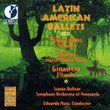| All Artists: Franz Liszt, Georgia Mangos, Louise Mangos Title: LISZT: Symphonic poems Vol III Members Wishing: 0 Total Copies: 0 Label: Cedille Release Date: 8/10/2000 Genre: Classical Styles: Chamber Music, Historical Periods, Classical (c.1770-1830), Instruments, Keyboard Number of Discs: 1 SwapaCD Credits: 1 UPC: 789368509928 |
Search - Franz Liszt, Georgia Mangos, Louise Mangos :: LISZT: Symphonic poems Vol III
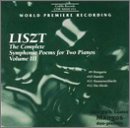 | Franz Liszt, Georgia Mangos, Louise Mangos LISZT: Symphonic poems Vol III Genre: Classical
This is the final volume in the historic collection of Liszt's own two-piano versions of his 12 symphonic poems from the Weimar period (1848-61). The 3-disc series comprises the first complete recording of these works, ... more » |
Larger Image |
CD Details
Synopsis
Album Description
This is the final volume in the historic collection of Liszt's own two-piano versions of his 12 symphonic poems from the Weimar period (1848-61). The 3-disc series comprises the first complete recording of these works, most of which had disappeared from the repertoire by the turn of the century. Chicago-area concert pianists and music professors The Mangos Sisters discovered the scores, which have never been published in modern versions, while scouting for duo-piano repertoire in European libraries, collections, and music shops. The first Liszt CD released in June 1993 received such comments as: "stunning", "absolutely smashing," and "sensitive, virtuosic and idiomatic." The Chicago Sun-Times praised the second disc, released in October 1995, for its "astounding heavy metal pianism" and "almost surreal musicianship and interpretation." On the third CD, the Mangos sisters perform the folk and Gypsy-imbued Hungaria, which resembles an expanded version of one of the Hungarian Rhapsodies (on Cedille's Liszt for Two) the powerfully compact and eerily ethereal Hamlet; the furious, then contemplative Hunnenschlacht (Hun's Battle), inspired by a mural depicting a battle "so fierce that the spirits of the dead were seen continuing to fight in the sky" (from the program notes); and the joyful, brooding, and ultimately splendorous Die Ideale, based on Schiller's poem of disillusionment and spiritual attainment. "Liszt's two-piano transcriptions of his tone poems are monumental in scope," writes former Piano Quarterly publisher Robert Silverman in the CD notes. "These major works take on a whole new meaning when the musical palette is pared down to its essentials. The architecture and various melodic strands are clear to the ear . . . Yet the use of two pianos allows for great outpourings of sound -- comparable to that of a full orchestra." "I'm not sure [Liszt] conceived the piano as having any limit of coloration," Louise Mangos said in an interview with Fanfare's James Reel. Reel echoed other reviewers in commenting, "The riveting Mangoses performances make a far better case for these works than the three integral orchestral cycles I have heard."
Similarly Requested CDs
| Franz Liszt, Zubin Mehta Liszt: Symphonic Poems Genre: Classical Label: Sony | |
| Donovan Golden Hits Genres: Folk, International Music, Pop, Rock, Classic Rock Label: Masters Intercontine | |
| Colin McPhee, Dennis Russell Davies, Bpo Music of Genre: Classical Label: Music Masters Jazz | |
| Steven Stucky, John Tavener, Bernard Rands Colors of Love Genres: Folk, Classical Label: Teldec | |

 Track Listings (4) - Disc #1
Track Listings (4) - Disc #1
